Hidden from the rubbish-strewn streets of Birmingham lies a grand wood-panelled stately home with extensive lawns and woodland carpeted in bluebells and wild garlic. More than just a college, Fircroft acts as a sanctuary to the city’s dispossessed.
The rubbish is the result of prolonged strikes of Birmingham’s heavily unionised refuse workers, reflecting the city’s close links with the trade union movement. That movement also played a key role in Fircroft’s past. But nowadays the college has shifted away from serving unionised workers to providing holistic support to those who are unemployed, homeless and recovering from drug or alcohol addiction.
Fircroft is one of just two adult residential colleges left in the UK, the other being Northern College in Barnsley.
Forty years ago there were dozens, mainly set up by local authorities in former stately homes after the Second World War. The decline in trade union education meant that by the time Mel Lenehan joined Fircroft as principal in 2016, just four were left. Two more have toppled since the pandemic.
The unique benefits of adult residential colleges lie in their ability to spark long-lasting behaviour change. Learners at Fircroft become immersed in their learning as its students and staff eat meals together, share stories around its fire pit and sing songs gathered around its piano.
“Because we’re so tiny there’s that camaraderie, building up a network for our learners that lasts a lifetime,” says Lenehan.
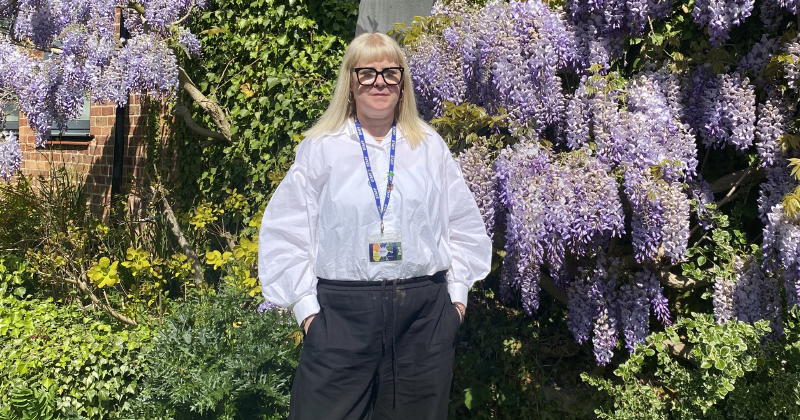
Repivoting provision
Fircroft has grown by 50 per cent since Lenehan took over. Demand has “increased massively” since the pandemic, with bankrupt Birmingham City Council having cut back on the services that its learners once depended on.
The loss of rehabilitation charities, community centres and mental health services means that Fircroft is now taking on students with “more challenging support needs than ever”, says Lenehan.
The college is “completely oversubscribed”, and it is “not abnormal” for it to receive 50 or 60 applications for a 12-place course.
Deanna Thomas, a health and social care tutor and quality and curriculum co-ordinator, says her biggest challenge lies in balancing the need to provide mental health support for residential students with “quite chaotic lives outside college” with helping them progress on their “very intense” level 3 access courses (in either a health or humanities strand), which are fast-tracked over nine months. “It’s a struggle for many of them,” she admits.
The pass rate on these courses is 100 per cent for those who make it to the end. They are normally then offered university places, which “the vast majority accept”. Last year Thomas says “quite a few” dropped out for mental health reasons, although none have so far this time.
Lenehan sees Fircroft as “the antithesis of the FE sector with its mergers and huge national colleges” in these “neoliberal times of money means all”.
But she admits it has been a difficult few years for the college, with successive instances of flooding (now rectified through major drainage works) and an electrical fire on its centennial anniversary, on top of the pandemic and continuing funding uncertainty.
She is proud to have maintained an organisation that is “relevant, has amazing outcomes for students and is financially really sound… so when we do hit rocky times, we’ll survive”.
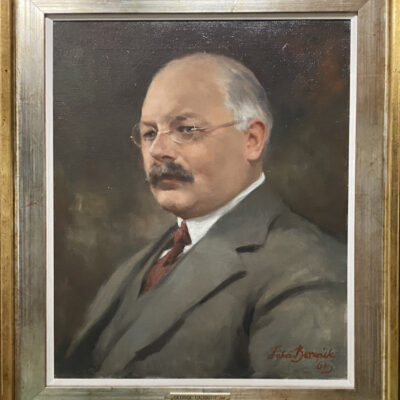
Chocolate foundations
Fircroft was founded in 1909 by the social philanthropist George Cadbury Jr, who as a young man would cycle there on Sundays from his nearby home with his father, the chocolate business founder John Cadbury, to teach adult literacy classes to their factory workers.
The smell of chocolate would have wafted in from their Bournville factory, just a 10 minute walk away.
Legend has it that the two fir trees near its entrance, from which Fircroft gets its name, were planted by Cadbury Jr to mark his 10th wedding anniversary. Their branches have since spread so their leaves are now “entwined”, which Lenehan finds “really beautiful”.
Cadbury Jr established Fircroft as a college after visiting Denmark, where the movement of folk high schools (folkehøjskole), focused on teaching people how to improve their communities, was gaining traction.
He said at the time he was establishing a college for workers “not to rise to a superior class, but to raise their class”.
The college holds true to those values today with its slogan: “learning to become a better world”.
Fircroft’s original learners were taught year-long courses in politics, economics and literature, which Lenehan sees as the precursors of its current access courses.
George Cadbury Jr’s servant’s bell still hangs in a wood-panelled room at the college, which also houses his books (including the Dialogues of Plato). Etchings on the doorframe mark the changing heights of his children and grandchildren, from when they visited him there.

International movement
Although Fircroft’s intake has completely changed over the last century, the college has maintained its links with the international folk high school movement, sharing its commitment to social and environmental justice.
Lenehan is currently editing a book about folk high schools and is clearly enthused with a passion for the movement.
Fircroft has also influenced in some ways the founding of other folk high schools; when Danish quaker Dr Peter Manniche visited the makeshift field hospital erected in Fircroft’s grounds during the First World War, he was so inspired by a pacifist ambulance driver he met there (who recounted dramatic tales of having saved the lives of German soldiers) that he established a folk high school, the International People’s College near Copenhagen, upon returning home. Fircroft still partners with that college today.
“Wherever I go in the world, I meet someone who has heard of Fircroft,” says Lenehan.
But Fircroft differs from the traditional folk school model in that it puts its learners through exams, with formal assessment methods being shunned by the rest of the movement.
“Our learners do need qualifications as pathways into either work or further learning,” says Lenehan.
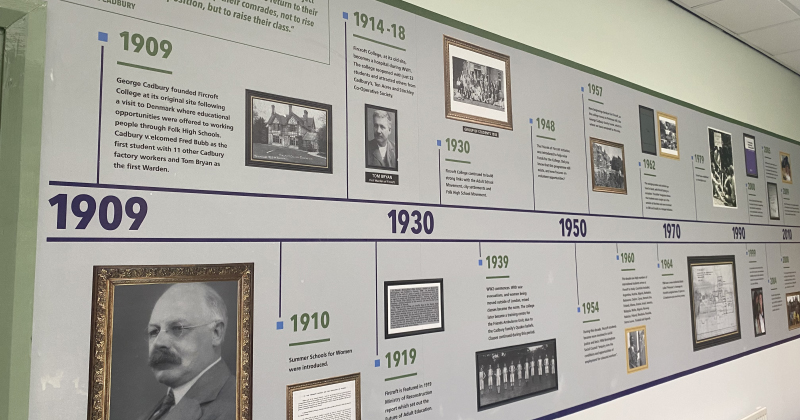
Finding their voices
Fircroft has only 49 bedrooms, and most of the 2,000 students who come through its doors each year are non-residential students, taking short courses in personal development subjects, such as understanding addiction, coping with trauma and a free thinking programme for victims of modern slavery.
Lenehan’s ambition is for Fircroft to be as full as possible.
She is currently repivoting much of its short-term provision around the sustainability agenda.
The college’s Rebuilders programme, which has just finished its first year, teaches green techniques to SME construction workers and it recently hosted a conference of 100 teachers on green skills, funded through the local skills improvement fund.
An ‘eco classroom’ is about to be built at Fircroft as “an exemplar of how to build outdoor classrooms with zero carbon”, with its own battery storage and 200 solar panels.
Music plays an integral role in college life. Lenehan has a keyboard in her office, and the college has taken up the folk high school tradition of regular singing; every Tuesday and Thursday at 2.45pm, learners meet in its common room to sing along to its piano. Fond favourites include Labi Siffre’s (Something Inside) So Strong.
Fircroft teacher Zoe Mabbs, who leads the singing sessions, admits that at first some students are reserved about flexing their vocal chords, but adds: “It’s amazing how quickly that turns around and it becomes a cultural norm.”
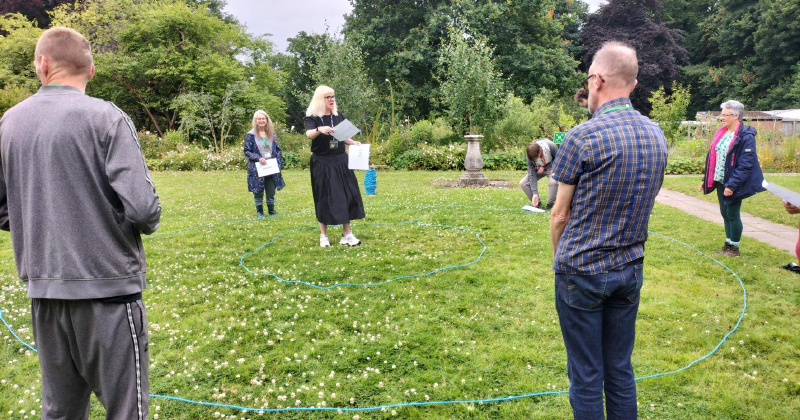
Overcoming addiction
Fircroft’s 60 staff often take on multiple roles – a cleaner is currently out mowing its vast lawn. Lenehan says her cleaning team are “as vital to students’ success stories as the teaching staff”.
In the cafeteria, staff sit with students to eat mainly vegan dishes, with at least one portion of homegrown produce served up each day. Today, it’s a cup of carrot soup.
The library is used not just for reading, but as a nighttime refuge for students struggling with insomnia.
In her functional skills English class today, Mabbs is preparing learners for an assessed discussion around how to encourage adults to exercise.
One of her learners is Fern. She has been in recovery for over a year now after three decades of severe addiction, and wants to use her “lived experience” to open a detox unit for the “street homeless and working girls” when she completes her course in July.
“This place has been so kind, and because it’s small, there aren’t too many personalities to deal with. I’ve made some beautiful friends,” Fern says.
Fircroft takes a zero-tolerance approach to drug and alcohol use, and has overnight staff on duty to safeguard vulnerable adults.
Fern has seen students “not adhering to the values of the college” who have been “removed, which is good because we want to feel safe”.
Lenehan believes that new students get encouragement from meeting other students who are further along the journey than themselves.
“People who never thought they would set foot in an educational organisation again come here and see students with similar life experiences to them heading to university in September. That role modelling is transformative,” she says.
But proving that Fircroft’s students gain better long-term outcomes from their time at Fircroft is “really hard”. Because “budgets are so tight” the college lacks the funds needed to develop an evidence base.
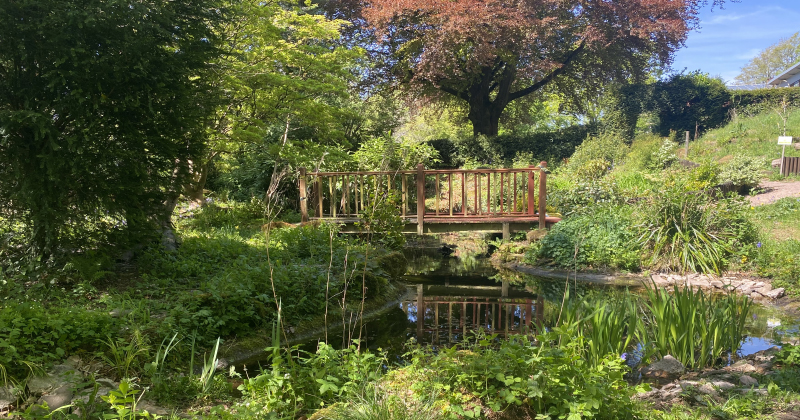
Funding uncertainty
In 2019, the Department for Education said it wanted to review the funding structure under which adult residential colleges get an uplift to cover residential costs. Ever since, Fircroft and Northern have been locked into protracted discussions over what such a funding formula might look like, with devolution further complicating the picture.
The uncertainty makes it “tricky” for these colleges to monitor performance, because different models give different outcomes in terms of meeting contracts and delivery.
Lenehan says it looks like future uplifts will go through the discretionary learning support fund as part of the adult skills budget. But negotiations are continuing.
Fircroft had a “slight cut” in its DfE funding (for its learners from non-devolved areas) to £68,000 for this year, but because the vast majority of its learners are residents of the local West Midlands Combined Authority, which has committed to supporting the college, it has fared better than many other adult education facilities.
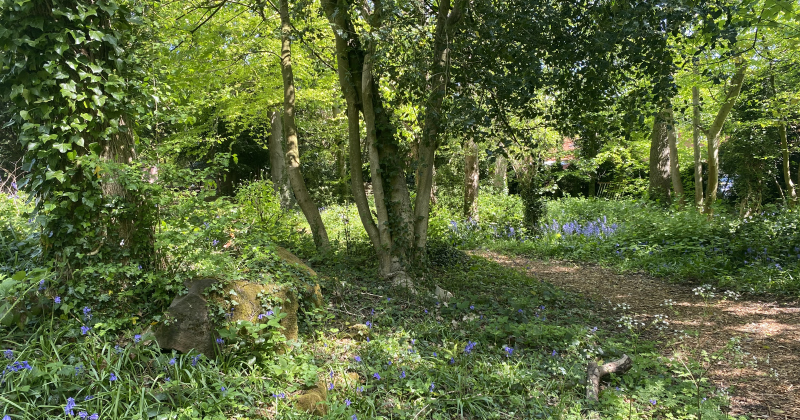
Outdoor learning
In an era in which many colleges have sold off excess land, Fircroft is blessed to have six acres featuring a duck pond, orchard, allotments and a large greenhouse.
In its permaculture garden, green skills tutor Felipe Molina teaches learners how to propagate plants and manage volunteer teams, so they can establish their own community gardens when they leave.
He compares this seed propagation to the passing on of skills by Fircroft’s teachers. “People leave here with the skills, and the plants go out with them,” he says.
Creative writing classes and staff meetings sometimes take place under the shade of the college’s 267 trees, including (once) a governing board committee. Benches around a woodland fire pit are sheltered from the rain by a canopy with its own lighting.
Mark, a recovering addict who is studying a health and social care access course, likes the fact that Fircroft’s grounds are “so big that no matter how busy the college might be, there’s always somewhere quiet to go”.
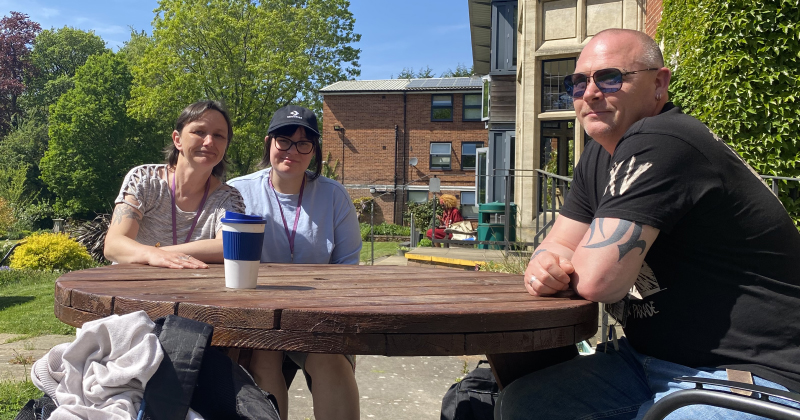
He left school with no qualifications and has never held down a job for more than a few months. This is his sixth attempt at a college course, and the first time he has ever come close to completing one.
He appreciates how at Fircroft, “there’s no judgment” of his emotional challenges.
He says: “Everyone’s accepted for who they are, and they understand mental health. Anywhere I’ve ever been before in education, you just feel like another person in the crowd. But here, they literally do their absolute level best to make sure you understand.”
Former student Danny Singh found that after coming out of an alcohol addiction so severe he could not leave his house, all his confidence had gone.
“Coming to Fircroft built that up massively,” he says.
After completing an understanding mental health level 3 certificate at Fircroft, he now works in recovery himself.
“I thought I’d die in addiction. But each day, my hope just grows,” he says.
His words reflect what his former teacher Thomas says of Fircroft. “More than anything, this place gives people hope.”


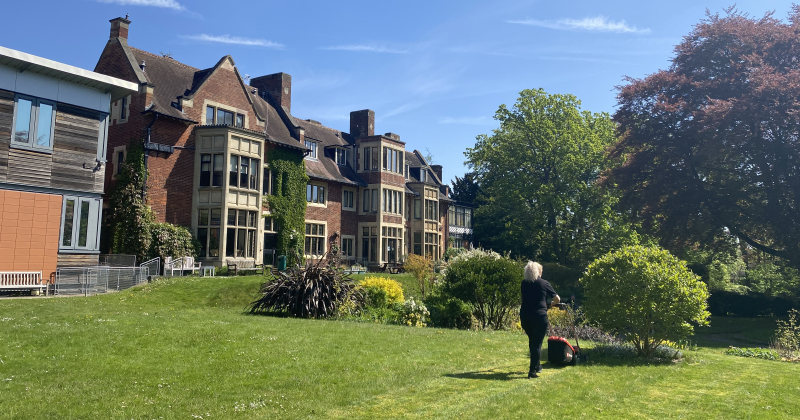













Your thoughts